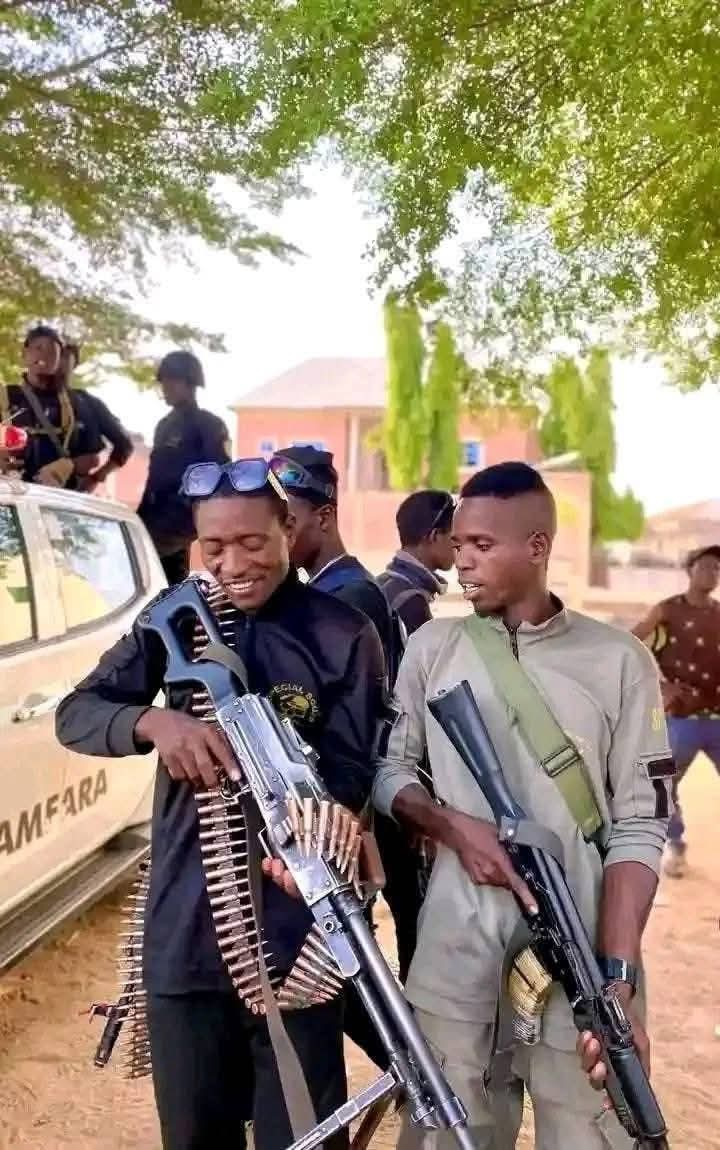Zamfara/Katsina/Northwest Nigeria — April 2025
A new wave of grassroots security resistance is sweeping through Northern Nigeria. In what sources have described as “the most effective civilian fightback in years,” the Hausa vigilante group known as Yan Sakai — now nicknamed Black Mamba by Hausaland Magazine — has launched a series of coordinated attacks against known Fulani terrorist bandits.
In just 72 hours, across Northern Zamfara and parts of Katsina, over 73 bandits were reportedly neutralized, including four notorious commanders. The operations were swift, community-led, and reportedly free of external security support.


But beyond the tactical success lies a deeper, more dangerous fault line — the revival of ethnic militia tensions between the Hausa and Fulani, threatening to push parts of Northern Nigeria toward widespread communal violence.
The Yan Sakai: Sons of the Soil Rise Again
Once disbanded by state governments due to allegations of extrajudicial killings, the Yan Sakai have returned, now better coordinated, ideologically hardened, and intensely local.
“Most of them are survivors — or children of the dead,” said Malam Bashir Anka, a community leader in Zamfara.
> “They no longer believe in the army or the police. They believe in themselves.”
The movement has gained traction in Eastern Sokoto, Zurmi, Batsari, and Dansadau, where communities have suffered repeated attacks from Fulani-identified bandits.


A Brewing Ethnic Divide
While the bandits are often criminal gangs using Fulani identity as cover, the ethnic framing of the conflict is deepening.
According to sources, the Yan Sakai are entirely Hausa. Despite invitations, Fulani communities have reportedly refused to join, citing fears of reprisal and collective punishment.
This has fueled perceptions that Fulani communities are complicit, despite there being many innocent Fulani victims of the same banditry.
Dr. Salihu Modibbo, a sociologist at ABU Zaria, notes:
> “The Hausa-Fulani alliance that once defined Northern politics is fraying. The narrative now is Hausa vs. Fulani, and that’s a dangerous evolution.”
Key Figures and Statistics
Over 12,000 civilians have been killed by banditry in the Northwest since 2011 (Armed Conflict Location & Event Data Project – ACLED, 2024).
77% of all reported bandit camps are in areas with Fulani pastoralist populations (Nigerian Security Tracker, 2023).
Displacement: Over 1.2 million people displaced in Zamfara, Katsina, and Sokoto since 2017 (UNHCR, 2024).
Yan Sakai informal fighters estimated at 4,000+ active members across Zamfara and Katsina as of March 2025.

Historical Context: A Fracture in the Caliphate Legacy
The Hausa-Fulani merger historically stems from the 19th-century Sokoto Caliphate under Usman Dan Fodio, who, though Fulani, unified the Hausa kingdoms under an Islamic reformist ideology. That merger held through colonial and post-colonial Nigeria.
But with modern-day insecurity, political marginalization, and competition over land and resources, the Fulani pastoralist vs. Hausa farmer dynamic has turned volatile.
“Gone is the brotherhood,” says historian Dr. Amina Danjuma.
> “We are witnessing a tribalization of what was once a shared heritage.”
The Way Forward: Preventing Ethnic War
To deescalate tensions and avoid full-scale inter-ethnic violence, experts suggest:
1. Federal and State Security Partnerships
Recognize and regulate vigilante groups under strict community policing frameworks (as in Amotekun in the Southwest).
Deploy elite anti-bandit units in known flashpoints, not just during crises.
2. Inter-ethnic Dialogue Platforms
Government must sponsor Hausa-Fulani peace forums, involving emirs, clerics, women, and youth leaders.
Reinforce messages of unity from historical Islamic traditions shared by both groups.
3. Fulani Inclusion in Security Solutions
Actively recruit and protect Fulani vigilante candidates in local defense groups to build trust and solidarity.
4. Justice for Victims
Set up regional truth and reconciliation commissions to investigate bandit atrocities and provide restitution.
5. Strategic Economic Resettlement
Cattle routes, grazing reserves, and rural infrastructure must be modernized to reduce land-based conflicts.
Conclusion: A Renaissance or a Rupture?
The rise of the Yan Sakai is a message — not only to criminals, but to the state. Where the government fails, the people will organize. But if that organization becomes ethnic vengeance rather than justice, Nigeria may face a conflict worse than Boko Haram — rural, ethnic, and tribal.
This is not just self-defense. It is the edge of a precipice. The time to act is now.
Dr. Imran Khazaly.
Senior investigative Correspondent, HeadlineNews.News




